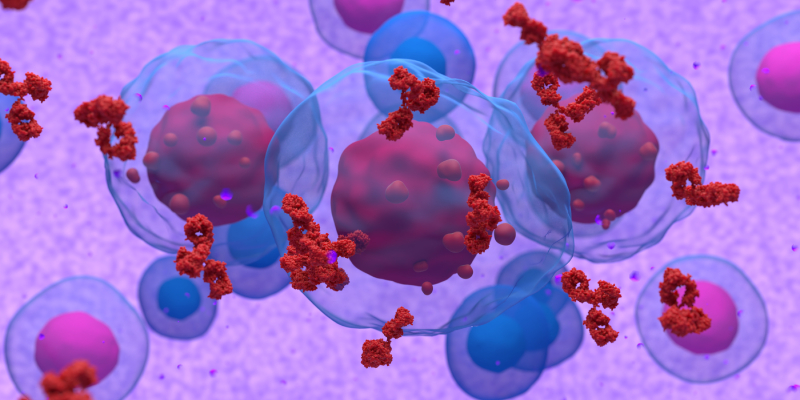
Late-phase research on the use of the next-generation, highly-selective PI3 kinase inhibitor, linperlisib for the treatment of relapsed or refractory peripheral T-cell lymphoma (PTCL) will soon commence. The plan follows a Type B End-of-Phase 2 Meeting during which the FDA gave clearance for the drug developer to proceed with a pivotal phase 3 protocol.1
Linperlisib will be investigated in a global registration study versus physician’s choice of standard treatment for relapsed or refractory PTCL, a study expected to add more favorable results to a growing body of data, which has involved approximately 6,000 patients with T-cell lymphoma.1
Previously, treatment with linperlisib achieved early responses in relapsed or refractory PTCL and was well tolerated. The phase 2 investigation included 35 patients with relapsed or refractory PTCL and 10 with cutaneous T-cell lymphoma who received 80 mg of the agent once daily for 28 cycles or until achievement of a complete response (CR). After a CR was achieved, patients received continuous maintenance therapy with linperlisib 40 mg, once daily.2
In 33 evaluable patients, an overall response rate of 48.5% was observed. Of the patients who responded to linperlisib, 11 achieved a CR, 5 achieved a partial response, and 4 had stable disease, for a disease control rate of 60.6%. The responders included patients with select PTCL subtypes including PTCL, not otherwise specified (n=7), angioimmunoblastic T-cell lymphoma (n= 8), and anaplastic large cell lymphoma (n=1). Responses to linperlisib lasted for a median duration of 5.8 months (1.9 months to not evaluable).
The median progression-free survival was 3.6 months (95% CI, 1.9-5.3) in the evaluable population. The median overall survival was not reached.
In 25 patients (55.6%), treatment-related adverse events (TRAEs) occurred. Neutropenia was the most frequently occurring TRAE. Grade 3 TRAEs observed in the study included neutropenia (8.9%), rash (4.4%), pneumonia (4.4%), decreased leukocyte count (2.2%), thrombocytopenia (2.2%), hypertriglyceridemia (2.2%), pneumonia (4.4%), transaminitis (2.2%), increased γ-glutamyltransferase (2.2%), and cellulitis (2.2%). Dose interruption was necessary for 23 patients; 1 interruption was due to 2 occurrences of grade 4 neutropenia, and 22 were due to other AEs. One study discontinuation occurred due to Pneumocystis jiroveci pneumonia.
Overall, the results were positive, but further investigation is warranted, according to the study investigators.
“This is a major milestone for linperlisib,” said Michael Hui, chairman and chief executive officer of Yingli Pharma, developer of linperlisib, in a press release.1 “We are very excited that linperlisib has entered the global pivotal study stage with the agreement from FDA. We will continue our mission to address patient unmet clinical needs globally and to accelerate the linperlisib clinical development program to bring more treatment options for patients with R/R PTCL.
References
- Yingli Pharma announces successful End-of-Phase 2 Meeting with FDA and clearance of global multi-center phase 3 registration study design of linperlisib for the treatment of relapsed and/or refractory peripheral T-cell lymphoma. News release. PR Newswire. April 1, 2025. Accessed April 11, 2025. https://www.prnewswire.com/news-releases/yingli-pharma-announces-successful-end-of-phase-2-meeting-with-fda-and-clearance-of-global-multi-center-phase-3-registration-study-design-of-linperlisib-for-the-treatment-of-relapsed-andor-refractory-peripheral-t-cell-lymphoma-302416397.html
- Iyer S, Nair R, Mehta-Shah, N, et al. A phase II clinical study exploring the safety and efficacy of the oral PI3Kδ inhibitor, linperlisib, in relapsed refractory T cell lymphoma. Blood. 2024;144(suppl 1): 4449. doi:1182/blood-2024-209340






 © 2025 Mashup Media, LLC, a Formedics Property. All Rights Reserved.
© 2025 Mashup Media, LLC, a Formedics Property. All Rights Reserved.